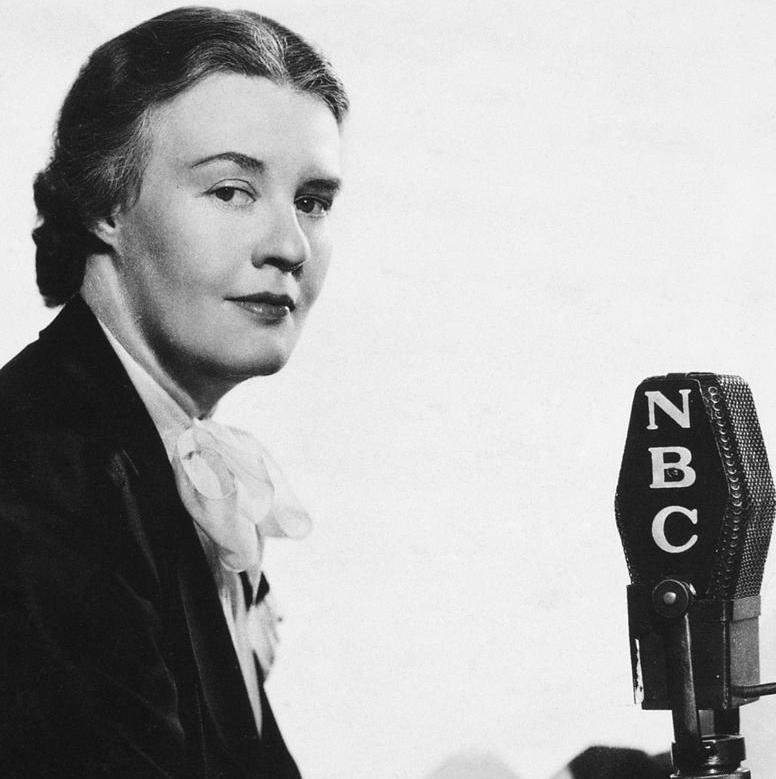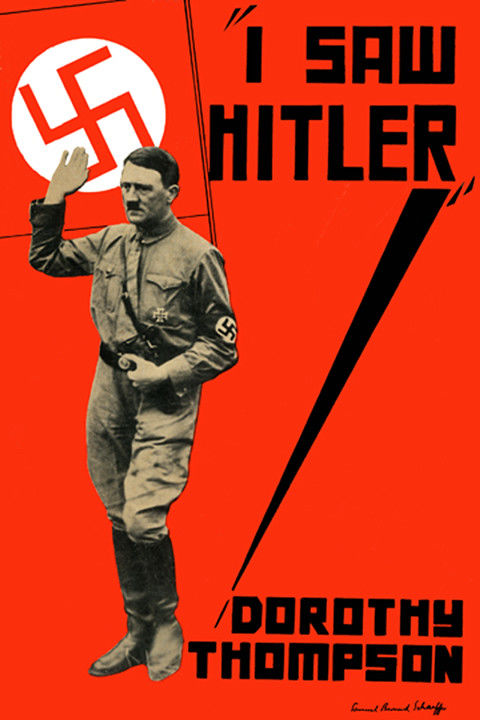Journalism Heros: Dorothy Thompson
Dorthy Thompson was a suffragette, an author, and most notably a pioneering Journalist who left an impact on the industry in more ways then one.
 Early Life
Early Life
Thompson was born July 9, 1893, in Lancaster, New York. Her father was a Methodist Preacher, and her mother died when she was eight due to blood poisoning after a failed abortion. She rebelled after her mother’s death, and her father remarried, so she was sent to Chicago to live with her aunt and finish school.
Thompson studied Politics and Economics at Syracuse University and became a suffragette.
Start of the Journalism Career
After the right to vote was gained in 1920, Thompson decided to pursue a career as a journalist abroad in Europe. In 1920 she covered a Zionist conference in Vienna, which would lead her to be employed as the European correspondent for the "Philidelpjia Public Ledger." In 1921 she posed as a Red Cross medical assistant and infiltrated the inner circle of King Karl I who failed his attempt to claim the Hungarian throne.Thompson didn't just sit by and watch, she was very active in her reporting, even being shot in a riot in Bulgaria. In 1925 she was appointed as head of the “New York Post” Berlin bureau in Germany. While here Thompson met Sinclair Lewis, and after courting for a few years married in London in 1928 (Her second marriage, but not her last).
The two moved back to America, bouncing between domestic life and writing insightful articles about the increasing socialism in Germany.
 She saw Hitler, and she was kicked out of Germany
She saw Hitler, and she was kicked out of Germany
In 1931, the Nazi Party invited Thompson to interview Hitler for Cosmopolitan magazine. She published along with her personal impressions of Hitler in her book I Saw Hitler!, which was released in 1933.
Neither painted Hitler or the Nazis in the most favorable light which angered Hitler greatly and would cause Hitler to personally ordered her to leave Germany in 1934 and she was the first American journalist to be expelled from the country.
Back In The US
Once back in the US Thompson devoted herself to publicly opposing the Nazis. She wrote a hugely popular political column, “On The Record,” three times each week from 1936 until 1958 and eventually was syndicated to as many as 170 daily papers.She wrote a monthly column for the “Ladies Home Journal” magazine and in 1937, she began giving weekly radio commentary on world events. Thompson also worked to bring the plight of European refugees who were fleeing war and persecution to the attention of the American public through radio addresses and Her 1938 book Refugees: Anarchy or Organization?
Sadly, Thompson’s increasingly successful career led to her and Lewis’s divorce in 1942 - "…The world was my first love and I have a faithful heart."
The Grynszpan Affair and The Christmas Declaration
After a 17-year-old Polish-German immigrant Herschel Grynszpan assassinated a German Diplomat ( in response to the Nazi’s unfair treatment of Jewish people) the catastrophic Kristallnacht was triggered. Thompson campaign for the protection and rescue of the boy, and through her radio broadcast raised over $40,000 (U.S.) was collected, enabling European lawyer to take his case. However, Gryznspan’s trial was never held, and his fate remains unknown.
In December 1942, Thompson organized a public statement opposing Nazism which was signed by fifty prominent German Americans - titled the “Christmas Declaration by Men and Women of German Ancestry” and went on to appeared in ten major newspapers.
The End of her career and the end of her life
Thompson was called on to advise President Franklin D. Roosevelt in 1940 regarding refugees and as aid as the US entered WWII. Thompson's contribution to the war effort included broadcasting into Germany by short-wave radio.
She continued writing her column for two more years till the “New York Post” dropped her when she shifted to more anti-zionist views. While on vacation in Lisbon, Portugal, in 1961, Thompson was alone in her hotel room when she died of a heart attack.
Reception and Recognition
For the most part, Thompson was regarded in a beyond favorable light and many admired her. She was dubbed “The First Lady of Journalism” and Time magazine dubbed her the country’s second most popular woman (after Eleanor Roosevelt).
Her obituary was published in papers big and small across the country and in Germany. In 2005, The Museum of Television & Radio honored Thompson by including her in their collection, She Made It: Women Creating Television and Radio.
Comments
Post a Comment